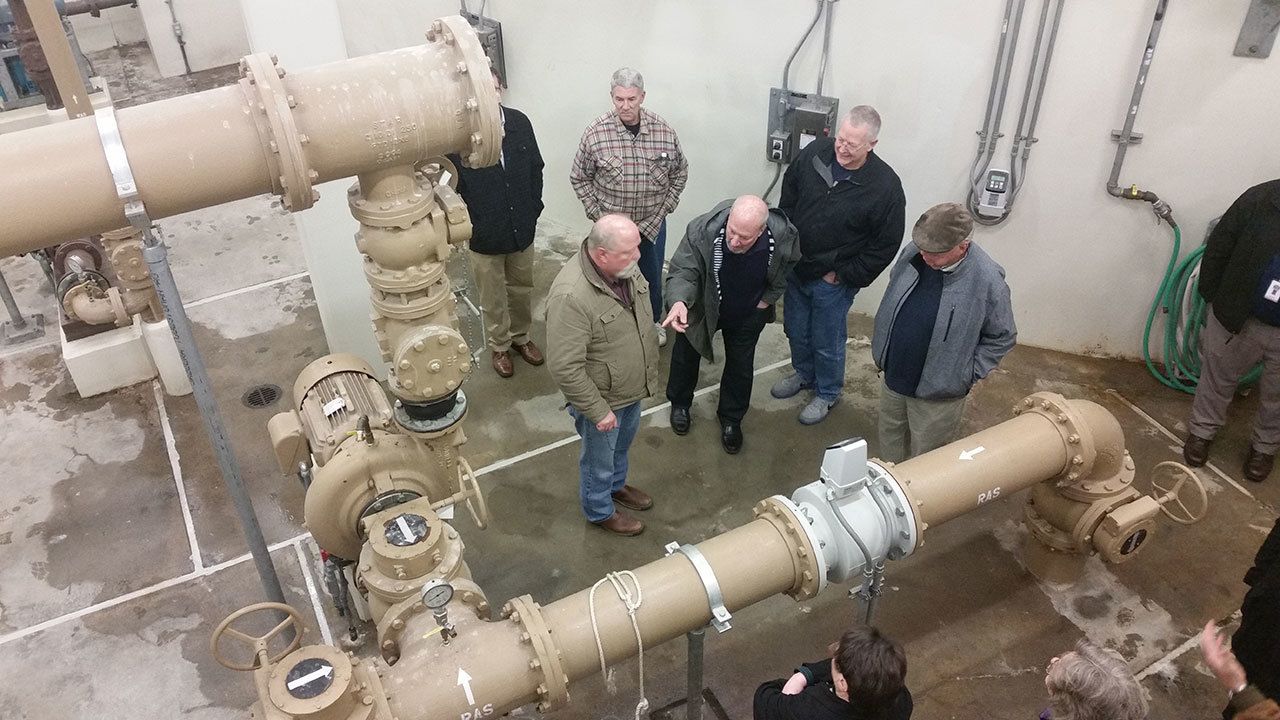Sumner and Bonney Lake residents should be prepared for sewer rate increases come the new year.
The rate increase, according to Sumner Communications Director and Bonney Lake City Administrator Don Morrison, is tied to three new full-time employees coming to work in the wastewater treatment plant in Sumner in the next two years.
Sumner handles all the wastewater for both cities.
Palmer said that the treatment plant currently employs 9 1/2 time employees, with the half-time employee being administration, rather than operations.
The Sumner City Council is proposing in its 2017-2018 biennium budget to hire two more operators in 2017 and a third in 2018 in order to keep up with state regulations.
“The rules keep getting stricter and stricter,” Palmer said.
Hiring the three new operators may also cut down on overtime, which Sumner spent close to $65,000 on in 2016.
The Sumner budget has not yet been adopted, but new utility rates were expected to be set Monday, Nov. 7 after press deadline.
Bringing on these three new employees will be the first staffing increase in 10 years, Palmer said.
According to city officials, the facility increased its capacity by 100 percent with its recent expansion and increased staffing by 33 percent.
“We are known as one of the most efficient stations in Washington, and we’re getting more efficient,” Palmer said, noting that the plant has received the Outstanding Wastewater Treatment Plant Award from the state Department of Ecology for five consecutive years in 2015.
But efficiency could be a small comfort to Sumner and Bonney Lake residents who will be paying higher sewer rates if these employees are hired.
Sumner residents paid $49.09 per month in 2016. This is expected to increase to $50.69 in 2017 and $52.33 in 2018.
Residents who use more than 500 cubic feet of water in a month are also charged a volumetric fee for every additional 100 cubic feet of water. This fee is expected to increase from $7.23 to $7.46 in 2017 and $7.71 in 2018.
Given that the size of the facility increased 100 percent and staffing only 33 percent, these rate increases are only 85 percent of the Consumer Price Index, Palmer said.
“That means we’re raising rates less than what we expect costs in general to go up, not to mention the increasing unfunded mandates we’re receiving from the State,” she continued. “The bottom line is that the facility is expected to get more and more efficient in its work for the next biennium.”
Bonney Lake residents will have to wait and see exactly what the exact new rates will be, Morrison said.
The city does know that these new hires means the city will be paying Sumner an extra $720,000 over the next biennium for Sumner to treat Bonney Lake’s wastewater, he said.
Additionally, Bonney Lake’s sewer fund doesn’t have any money in reserve to try and mitigate a rate increase.
Because of these two factors, Morrison expects the city would need to increase revenue by 13 percent in order to cover these new costs, which would mean increasing the $54.09 monthly sewer availability charge and the $3.36 monthly volumetric charge for every 100 cubic feet of water consumed in a household.
“It’s a big hit,” Morrison said, referring both to the city and residents. “It’s something we didn’t anticipate at all.”
Residents will know more about how much the rate will increase after a rate study is completed.
A resolution authorizing Financial Consulting Services Group to perform a rate study was on the docket for the Nov. 8 council meeting.
The study will not only look at sewer rates, but also water rates and system development charges, which may also see rate increases in the next two years.
Morrison said the study could be completed by the end of March 2017, but the City Council has talked about increasing rates before the study is complete, and then adjusting rates appropriately after it’s finished.


